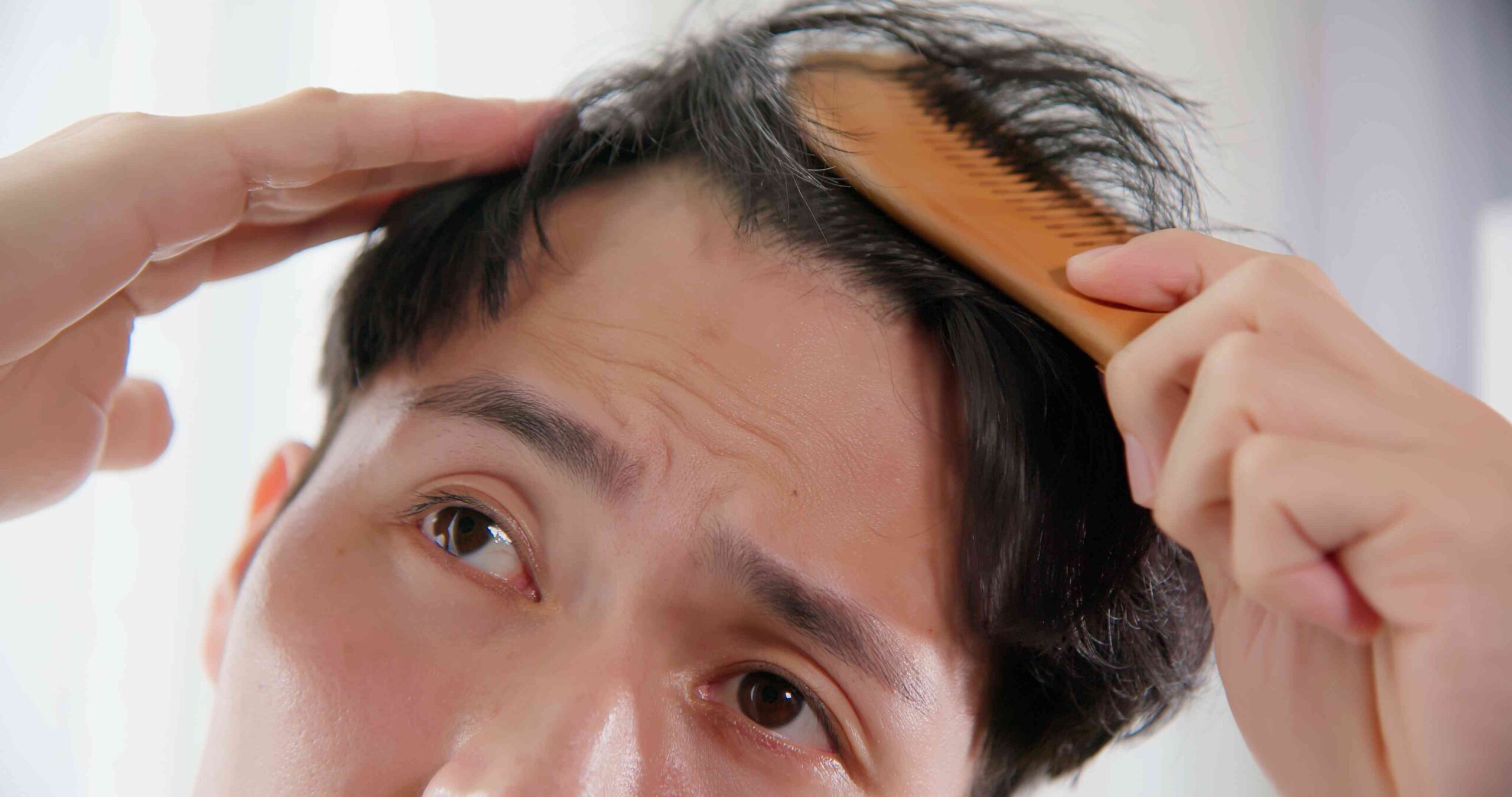
How Common Is Biotin Deficiency? Symptoms and Causes To Know
A biotin deficiency occurs when the body doesn’t get enough biotin (vitamin B7), a water-soluble vitamin that plays important roles in metabolism, cellular signaling, and gene regulation.
Biotin is found in many foods, including eggs, meat, nuts, vegetables, and seeds, and is naturally produced by gut bacteria in your digestive system.
A biotin deficiency is rare, but some people are more at risk of developing it.
Symptoms of biotin deficiency usually appear gradually over time. Some of the most common symptoms include:
- Thinning hair, which can progress to total loss of body hair
- Scaly, red rashes around the nose, eyes, mouth, and perineum (area between the anus and genitals)
- Conjunctivitis (pink eye, or inflammation of the eyeball membrane or inner eyelid)
- Seizures
- Brittle nails
- Depression
- Hallucinations
- Pins and needles feeling in the extremities (arms, hands, legs, feet)
- Low energy
- Developmental delay in infants
- Unusual distribution of facial fat
Biotin deficiency can also cause the blood to become too acidic due to high levels of lactic acid and ketone bodies, which can be life-threatening.
Biotin deficiency doesn’t typically occur in people without health conditions who follow a balanced, omnivorous (plant and animal) diet. However, some groups are more at risk of developing biotin deficiency:
People With Biotinidase Deficiency
Biotinidase deficiency is a genetic disorder that causes biotin deficiency.
With this rare disorder, the body cannot recycle biotin due to a deficiency of the enzyme biotinidase. Biotinidase allows the body to recycle biotin and reuse it for important processes such as breaking down protein, fats, and carbohydrates.
There are two types of biotinidase deficiency: partial and profound. People with less than 10% biotinidase activity than normal have profound disease, while people with 10-30% biotinidase activity have partial biotinidase deficiency.
People with partial biotinidase deficiency may have few or no symptoms. People with a profound deficiency can experience serious symptoms and possibly death if not immediately treated. Profound biotinidase deficiency presents in early infancy.
Profound deficiency affects around 1 in 80,000 people in the United States, while partial deficiency affects around 1 in 31,000-40,000 people.
People With Alcohol Use Disorder
Long-term overconsumption of alcohol significantly inhibits biotin uptake in the gut. It also reduces the expression of a protein called sodium-dependent multivitamin transporter (SMVT), which is responsible for the absorption of many vitamins, including biotin.
People who consume high amounts of alcohol are more likely to have low biotin levels compared to the general population. Studies show that 15% of people with long-term alcohol use disorder have low biotin levels.
People Who Are Pregnant or Breastfeeding
Research shows that about half of the people experiencing pregnancy in the U.S. are marginally deficient in biotin despite normal dietary intake. During pregnancy and lactation, there’s an increased demand for biotin.
Study findings suggest that people who are pregnant or breastfeeding need more biotin than current recommendations to meet biotin demands during these stages of life.
Another study found that biotin deficiency during pregnancy may increase the risk of preterm labor or fetal growth restriction.
Biotin deficiency is more common in women with hyperemesis gravidarum, a condition that causes extreme and persistent nausea and vomiting during pregnancy.
Other Causes
There are several other causes of biotin deficiency.
Excessive consumption of raw egg whites can lead to biotin deficiency. Raw eggs contain avidin, a protein that binds to biotin in the digestive tract, preventing its absorption.
Certain medications, such as antiseizure medications and isotretinoin, an acne medication, can cause low biotin levels. Prolonged use of antibiotics can also lead to biotin deficiency.
People who smoke and people of older age are also more at risk of developing biotin deficiency.
Biotinidase deficiency is diagnosed through newborn screening blood tests. All newborn screening programs in the U.S. screen for the condition.
People who show symptoms of biotinidase deficiency past infancy are also diagnosed through blood testing. If your healthcare provider suspects biotin deficiency, they may order blood, urine, and other tests to rule out or confirm it.
People with biotinidase deficiency require lifelong biotin supplementation. They typically take supplemental biotin in doses of 5-20 milligrams per day.
People who experience biotin deficiency from other causes also require biotin supplements.
If the cause of the deficiency is related to medication, like antiseizure medications, your healthcare provider may recommend switching to a different medication not associated with biotin deficiency.
People who have developed a biotin deficiency due to excessive consumption of raw eggs should stop eating raw eggs and supplement with biotin until their levels normalize.
If you have a biotin deficiency, your healthcare provider will suggest the best supplement regimen for your specific needs.
If properly treated, people with biotin deficiency can live normal, healthy lives.
People with biotinidase deficiency require lifelong biotin supplementation, which maintains consistent biotin levels. However, if biotinidase deficiency is not detected before symptoms appear, treatment cannot reverse any neurologic damage that occurs.
If biotinidase deficiency is not diagnosed and treated early in infancy, it can lead to:
- Developmental disabilities
- Damage to the optic nerve
- Hearing loss
- Weakness
- Recurrent infections
- Coma
- Death
People who develop low biotin levels from other causes, such as eating too many raw eggs or taking certain medications, should return to normal levels once they remove the cause and take biotin supplements.









